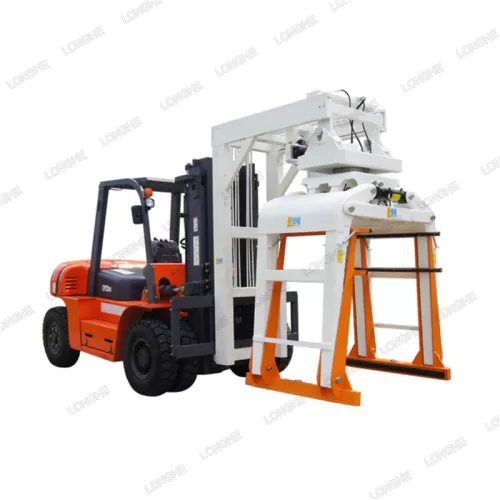Factors to Consider Before Choosing an Overhead Block Clamp
In the realm of material handling equipment, the overhead block clamp stands out as a versatile tool with a multitude of applications. This robust and reliable device offers a safe and efficient solution for lifting and transporting various types of loads. Whether you're operating in a warehouse, construction site, or manufacturing facility, the overhead block clamp proves to be an invaluable asset. In this article, we will delve into the functionalities, benefits, and considerations of using an overhead block clamp for your material handling needs.

Advantages of Overhead Block Clamps
Utilizing overhead block clamps for material handling brings several notable advantages, including:
Increased Efficiency and Productivity
By streamlining material handling processes, overhead block clamps significantly enhance operational efficiency and productivity. These clamps enable faster loading and unloading times, reducing downtime and increasing overall output.
Enhanced Safety Measures
Overhead block clamps incorporate various safety features, such as load sensors and anti-slip devices, ensuring safe and secure lifting operations. These safety measures minimize the risk of accidents, protecting both the load and personnel.
Versatility in Load Handling
Overhead block clamps are designed to handle a diverse range of materials, making them highly versatile. From concrete blocks to steel beams, these clamps offer the flexibility needed to accommodate different load types and sizes.
Cost-Effective Solution
By optimizing material handling processes and reducing manual labor, overhead block clamps offer a cost-effective solution. Their efficiency and productivity benefits help businesses save time and resources, leading to improved profitability.
Factors to Consider Before Choosing an Overhead Block Clamp
When selecting a block clamp, it is essential to consider the following factors:
Load Capacity and Dimensions
Ensure that the clamp's load capacity and dimensions align with your specific requirements. It is crucial to accurately assess the weight and size of the materials you will be handling to avoid overloading or compatibility issues.
Attachment Method and Compatibility
Verify that the attachment method of the overhead block clamp is compatible with your lifting equipment, such as cranes or forklifts. Compatibility ensures seamless integration and safe operations.
Maintenance and Service Requirements
Evaluate the maintenance and service requirements of the clamp. Regular inspections and servicing are essential to ensure optimal performance and longevity. Choose a clamp that offers easy maintenance and readily available spare parts.
Operator Training and Safety Regulations
Proper operator training is critical to ensure safe and efficient use of overhead block clamps. Familiarize yourself with the necessary training and safety regulations governing the operation of these devices to maintain a secure working environment.
Proper Usage and Safety Guidelines
To maximize the benefits of an overhead block clamp and ensure safe operations, it is important to follow these usage and safety guidelines:
Inspect the clamp before each use to ensure proper functioning and detect any signs of damage or wear.
Always adhere to the recommended load capacity and avoid overloading the clamp.
Position the clamp's jaws or pads securely around the load, ensuring a tight grip before lifting.
Use caution when maneuvering the load to prevent collisions or accidents.
Avoid sudden movements or jerks while lifting or lowering the load to maintain stability and control.
Follow all safety regulations and guidelines provided by the manufacturer and relevant authorities.
Choosing the Right Overhead Block Clamp for Your Needs
Selecting the appropriate overhead block clamp for your specific needs requires careful consideration. Evaluate the load requirements, application environment, and safety features to make an informed decision. Consult with reputable suppliers or industry experts to ensure you choose a reliable and suitable clamp.
Conclusion
The overhead block clamp serves as a versatile and indispensable tool for material handling operations across various industries. Its ability to securely grip and transport different types of loads, coupled with its efficiency and safety features, make it an excellent choice for businesses seeking to optimize their material handling processes. By following proper usage, maintenance, and safety guidelines, operators can harness the full potential of overhead block clamps while ensuring a safe working environment.




